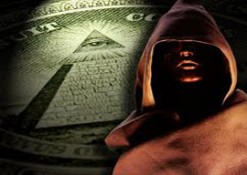
September 07, 2010

On August 29, the London think-tank Demos released a report called The Power of Unreason, which is “the first ever analysis of conspiracy theories in the ideology and propaganda of fifty extremist groups.”
These theories, say the authors, create and perpetuate demonologies, delegitimize moderation and “drive a wedge of distrust between governments and particular communities.”
In this case, “particular communities” means Muslims—but the authors are right to note that a belief in conspiracies is widespread, and can be very harmful.
Radical Muslims believe, notoriously, that there is a Jewish plot to rule the world—a belief they share with some white anti-Semites (a symbiosis that especially spooks the Demos writers). But beyond these eccentric excrescences, there is a very large and voluble army of die-hard paranoiacs unwilling to accept that usually stuff just happens. They simply cannot believe that it all simply got too much for David Kelly, that John F. Kennedy really was shot by a lone wolf, and that the World Trade Center really was attacked by Muslims. They feel that those of us who accept obvious explanations at face value are hopeless ingénues.
Some conspiracy-mongers like mystery for mystery’s sake. Others want to believe that they have secret knowledge unavailable to the masses. Others excuse their own inadequacies and failures by blaming an antipathetic “establishment.” Conspiracy-think is both convenient “explanation” and perpetual excuse. It is typified by Mohammed Al-Fayed, unable to believe that his son could have died at the hands of a drunken driver, who has erected a Great Pyramid of fatuous theory and tacky monuments to channel his sorrow, guilt and resentment against those who wisely won”t give him a UK passport.
But perhaps most conspiracy-believers simply want to be able to make sense of a universe in which the worst so often prosper. Once in the West, there was general belief in a divine plan which offered solace and sense to a random world. But now we have rejected Revelations in favor of Speculations—and as part of a generic rejection of all authority, many of us automatically put the worst possible construction on the activities of all authorities.
The problem is that being too suspicious may be as misguided as being too trusting. Although there are examples of genuine conspiracies—the Catillines, Guy Fawkes, or the recently revealed cover-up of a Catholic priest’s involvement in the 1972 IRA bombing at Claudy—they are strictly limited in their scope. Even when they are more ambitious, like the Illuminati so beloved of conspiratologists, they are usually unavailing. And most allegations are utterly baseless, not to say barking—we never went to the moon, the EU is a Nazi plot, the “Elders of Zion” have a Protocol for the world, Obama is a Saudi agent, Christ had children who became Merovingian monarchs whose existence is encoded in Da Vinci’s Last Supper.
The United Nations and the European Union are often called conspiracies—an odd allegation to make of bodies whose nature and purpose have long been apparent in publicly available documents.
The Bilderbergers and the Club of Rome are widely thought to be secret movers and shakers. But these are just dining clubs, where the most platitudinous remarks are exchanged by the most egregious bores between the prawn cocktail and port (I”ve been to a Club of Rome dinner, and would never go again), and in any case they have no legislative power. Those who clamor for the Bilderbergers to open up their meetings would be deeply disappointed by their sheer dullness.
Some imagined plots get tossed and gored by the mainstream media, and so they should. But these same allegedly wide-awake journalists are themselves often gullible when it comes to colorful stories about Whitehall, the Catholic Church, the CIA, big business, pharmaceuticals, Yale fraternities, Freemasons, “institutional racism” and the “far right.” Grand plans are so much more graspable than the real-life mess of mistakes, misunderstandings and misrepresentation.
The uncomfortable yet also liberating truth is that everything and everyone is fallible and unpredictable, and even the powerful are not as much in control as they (and we) might like to think. The world is both much freer and more complex than we often care to imagine.